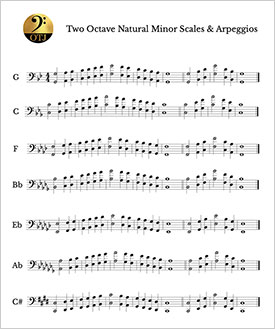
By
Richard Human, Jr. • June 14, 2022 in
The Practice RoomAfter the major scales and arpeggios, the natural minor scales and arpeggios, or Aeolian mode, are the second-most used scales and chords in Western classical music, jazz, and rock. If you have memorized your major scales and arpeggios and know their key signatures, then you already know the natural minor scales and arpeggios!
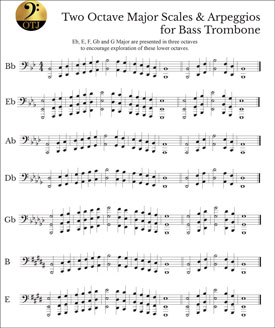
By
Chris Waage • January 13, 2022 in
From the StudioFor a bass trombonist, scale practice down to the bottom end of the instrument is critical for mastery. You've probably already been working into the pedal register - after all, it's fun! Now, let's put that fun to work.
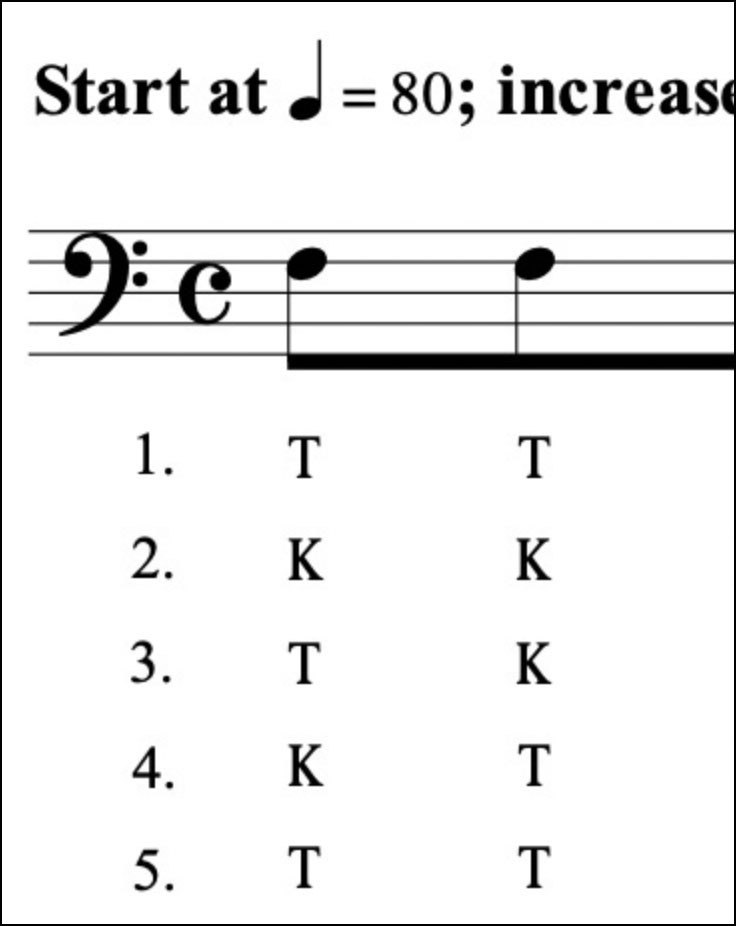
By
David Mathie • October 27, 2021 in
The Practice RoomAs trombone players, we are expected to tongue whatever is put in front of us, assuming we don't need to move our slides much when things get fast. Joking aside, brass players need to accommodate passages that are too rapid to tongue using the normal "Tah" syllable. To do this we use multiple tonguing.
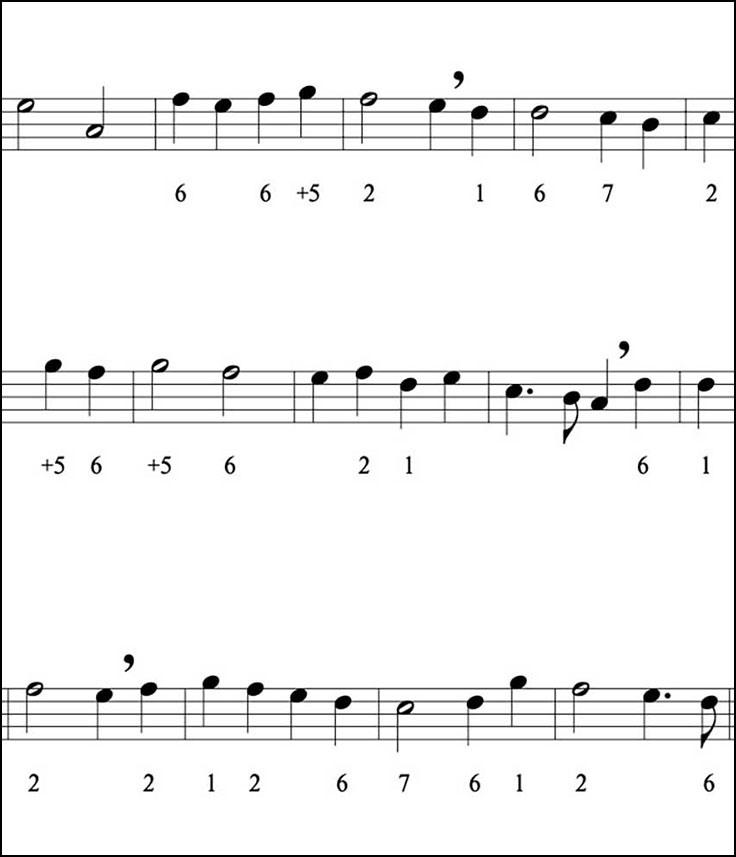
By
David Mathie • June 01, 2021 in
The Practice RoomIn the brass family, alternate fingerings are rarely needed and rarely used, with the exception of the trombone. On our instrument, alternate positions are of vital importance and make it possible for us to have technical facility approaching that of the valved brass.
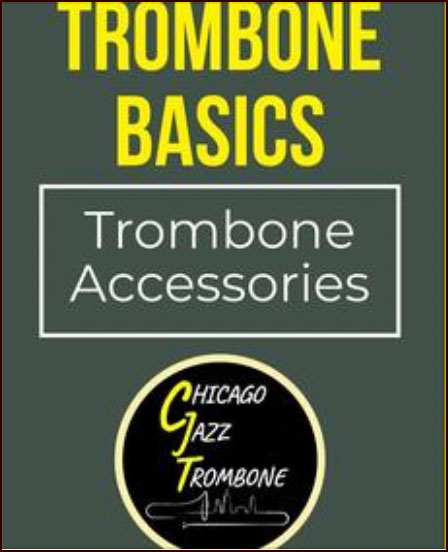
By
Luke Malewicz • April 27, 2021 in
The Practice RoomIn addition to your instrument you will also need some accessories to get started. These vary from ones you may already be familiar with like a music stand to ones you may not realize you need.
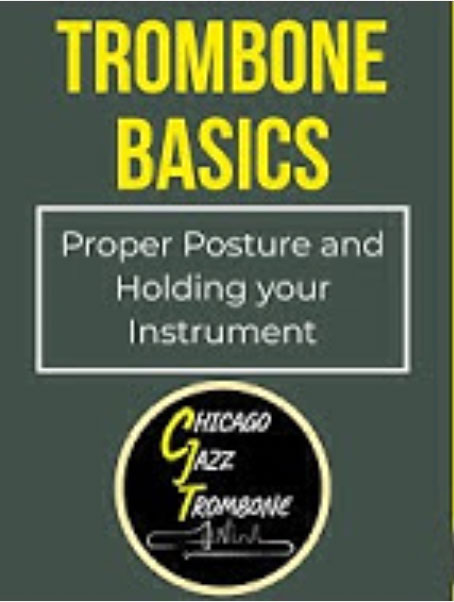
By
Luke Malewicz • February 19, 2021 in
The Practice RoomAs you get more comfortable with your new instrument it's important to start building good habits. One of the first challenges you will encounter (apart from making sound on the trombone) is properly holding it in a way that is not only comfortable but will also give you the best chance of producing a good sound.
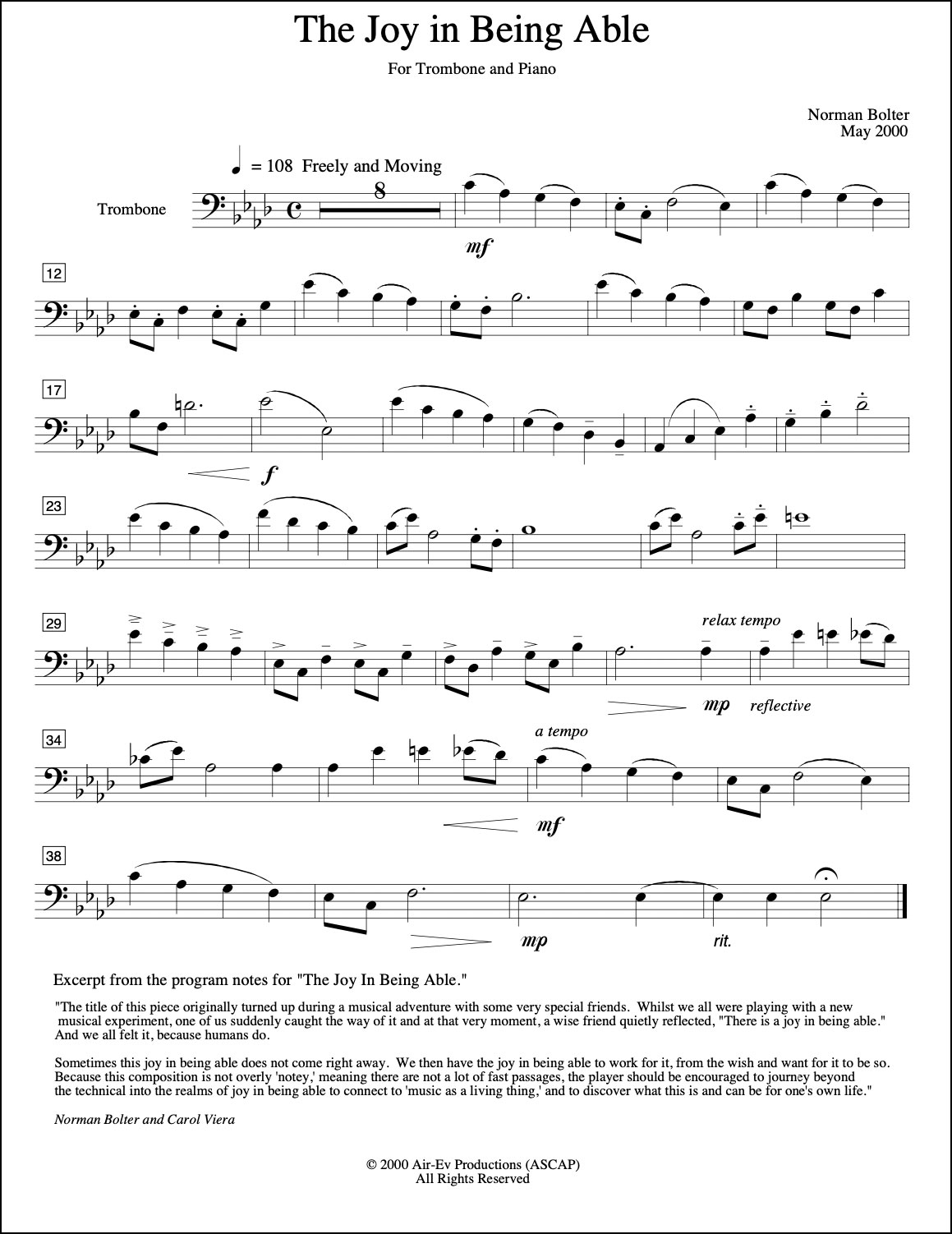
By
Richard Human, Jr. • February 07, 2021 in
The Practice RoomNorman Bolter, composer of many striking and meaningful musical works for the trombone, has written this work, The Joy In Being Able, specifically for the younger trombonist. This piece is available only here in the "Practice Room" section of the Online Trombone Journal.
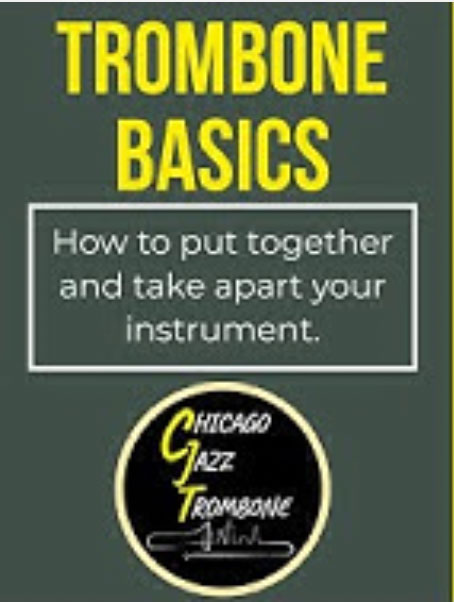
By
Luke Malewicz • January 31, 2021 in
The Practice RoomJust as with any instrument the trombone is easy to damage it if we are not careful not only when playing it but also when we take it out and put it back into the case. In this video I will walk you through putting the instrument together and taking it apart.
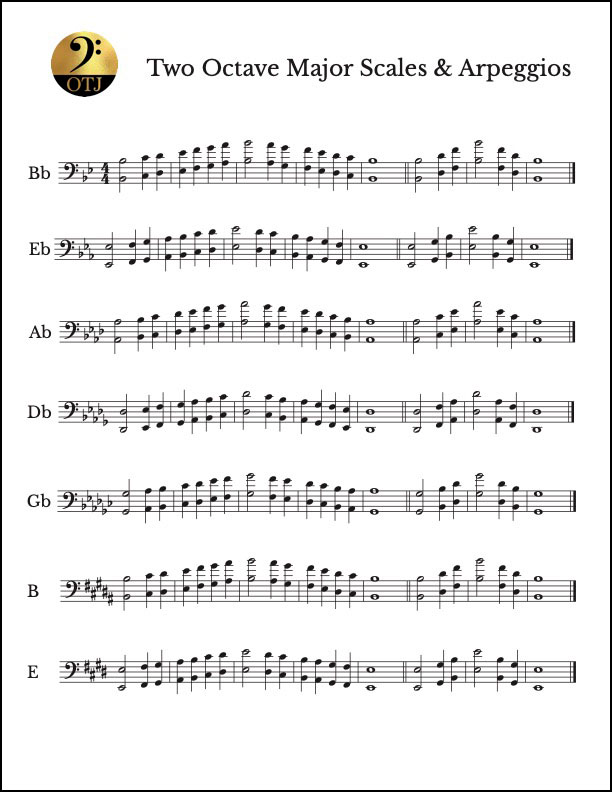
By
Richard Human, Jr. • December 24, 2020 in
The Practice RoomAs you and your ensemble members improve you will practice and perform more advanced
and challenging music. Learning and practicing two octave scales and arpeggios can
help you to prepare for these challenges.
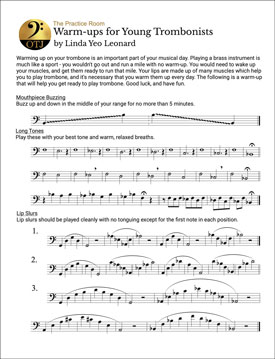
By
Linda Leonard • December 08, 2020 in
The Practice RoomYour lips are made up of many muscles which help you to play trombone, and it's necessary that you warm them up every day. This is a warm-up that will help you get ready to play the trombone.
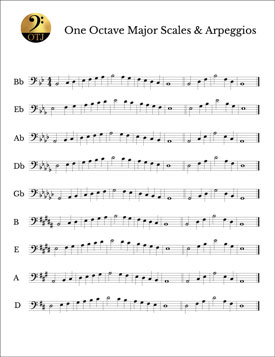
By
Richard Human, Jr. • December 08, 2020 in
The Practice RoomIf you have spent any time at all learning to play an instrument, you have come across scales and arpeggios. There is a reason for this - they are the foundation to musical technique, and one of the very basic doors we have into the understanding of playing our instruments.
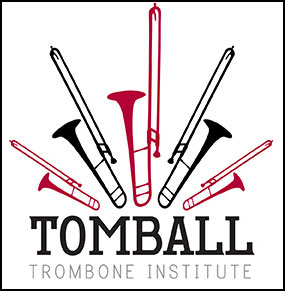
By
Jeff Dunn • September 24, 2019 in
Professional/CareerWe founded the Tomball Trombone Institute to create an opportunity for students and for the greater trombone community. Since then, our annual program has seen increased enrollment, additional divisions added, and provided an opportunity for trombonists to teach others and perform. It is our hope that by sharing our story, we can inspire others to create opportunities in their communities to further our instrument and education.













